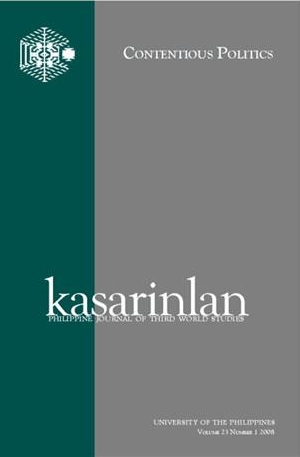Politics of the Great Debate in the 1950s: Revisiting Economic Decolonization in the Philippines
Abstract
After the Philippine government established the Central Bank and implemented import and exchange controls as part of economic decolonization, a Great Debate evolved as a clash of ideas and interests among politico-economic elites. The Central Bank governor tried to maintain a tight monetary policy and foreign exchange controls while some cabinet members, backed by the powerful sugar industry, advocated the implementation of a more liberal monetary policy and a change of the exchange rate. The debate became a major political as well as policy issue through a series of elections, and led to the resignation of cabinet members and reappointment of the governor. In contrast to the conventional view, a political consequence of the debate showed that the state bureaucracy acted strongly vis-à-vis vested interests. In fact, the debate represented a new type of politics in the Philippines: the politics of economic policy. Focusing on two prominent economists, Miguel Cuaderno and Salvador Araneta, this paper analyzes how different ideas and interests were contested in the debate, and how the politics of economic decolonization shaped the direction of economic policymaking at an initial phase of economic development.
Section
Articles
Keywords
economic decolonization; Philippines; Miguel Cuaderno; Salvador Araneta; Central Bank; policy process; Great Debate; economic policy
By submitting a manuscript, the authors agree that the exclusive rights to reproduce and distribute the article have been given to the Third World Studies Center.



